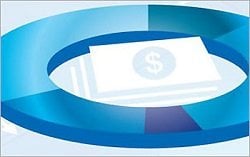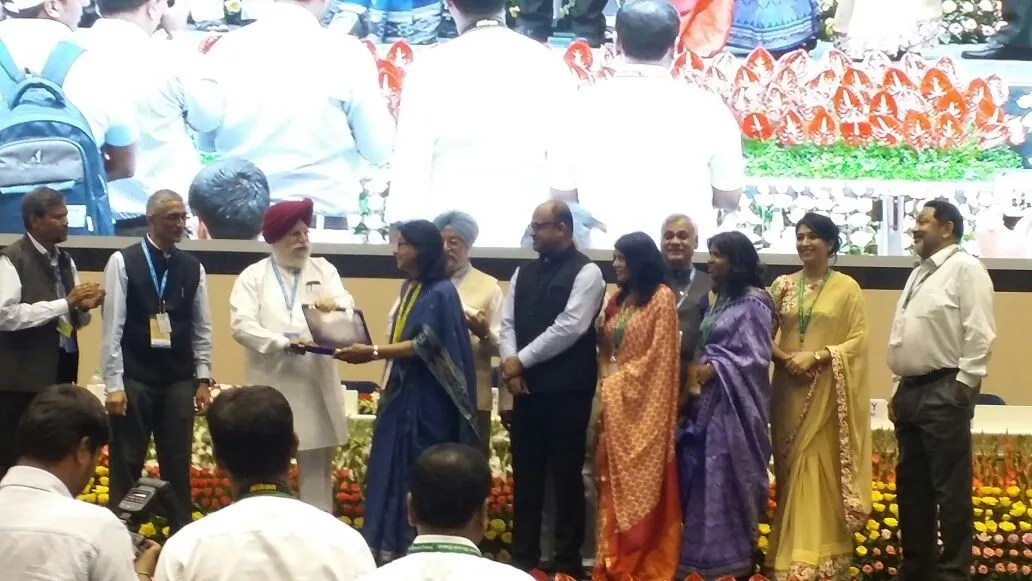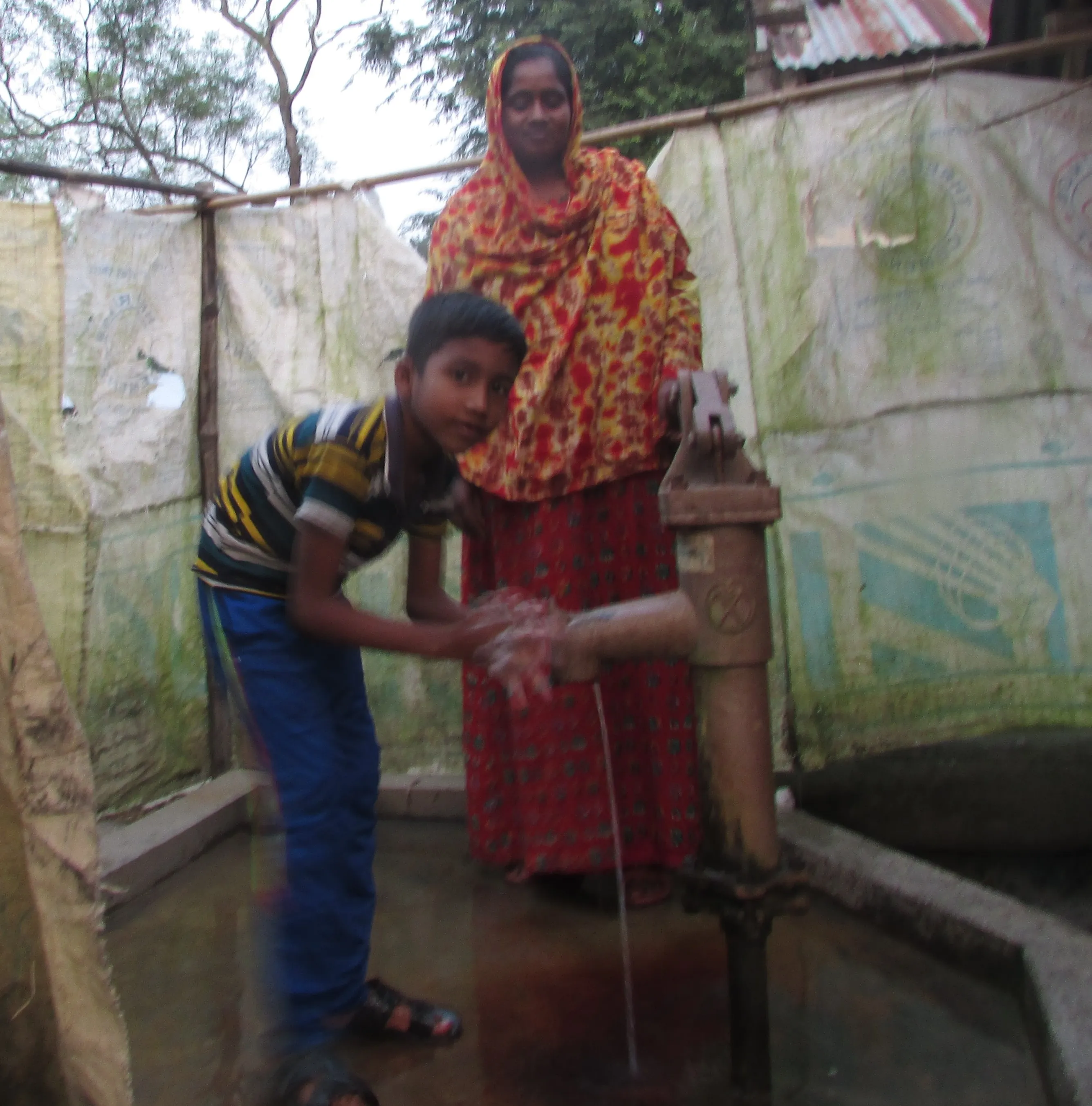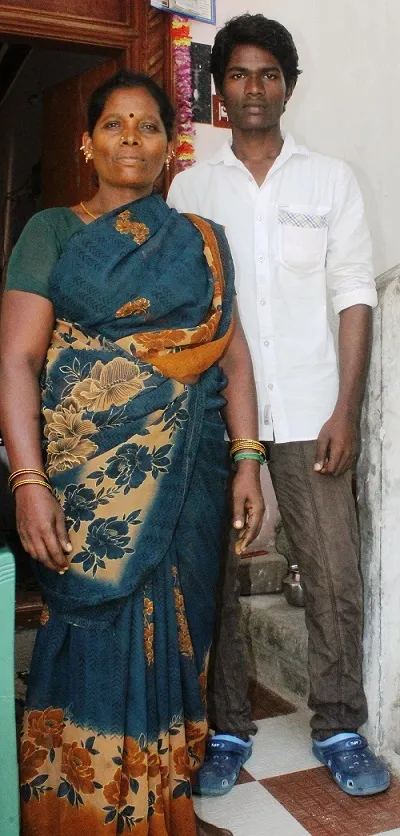South Asia Newsletter - November 2017
India Sanitation Coalition gets top Corporate category award under Swachh Bharat Mission
New Delhi, October 2, 2017: On the occasion of the third anniversary celebration of the Swachh Bharat Mission, the India Sanitation Coalition (ISC) was awarded the top award in the Corporate category for its contribution towards the Swachh Bharat Mission by the Ministry of Drinking Water and Sanitation. The award was received by Ms. Naina Lal Kidwai, Chair, India Sanitation Coalition, and Past President of FICCI together with the ISC Team.
Ms. Kidwai said “The India Sanitation Coalition works to enable its partners to work at a higher level of impact by collaborative effort and sharing of best practices. It is for each to do what they do better. And for all of us as citizens to contribute."
For more information on the ISC, please visit www.indiasanitationcoalition.org
Pictured: The Minister of State for Drinking Water and Sanitation Mr. SS Ahluwalia awarded Ms. Kidwai, recognizing ISC’s contribution towards the national Swachh Bharat Mission
WHO Hosts TrackFin Orientation Workshop to Prepare for India Pilot Program 
From August 22nd to 24th, 2017, the World Health Organization hosted an orientation workshop on tracking financing (TrackFin) to drinking water, sanitation, and hygiene in New Delhi, India. The workshop highlighted the substantial gaps in understanding and tracking financing to the WASH sector—financial reporting is often insufficient to make sound, evidence-based planning and budgeting decisions in WASH sector. To help address this issue, WHO is leading the TrackFin initiative under the UN-Water GLAAS project, aimed at defining and testing a globally accepted methodology to track financing to WASH at a national level. This methodology enables countries to track financing to the sector based on standard classifications and to develop a set of WASH accounts (a methodology to identify and track financing to the WASH sector) and indicators presented in a comparable format to help answer basic questions.
India has been selected as the next country to apply the TrackFin approach, starting with pilots in the states of Rajasthan and West Bengal. The workshop helped introduce the TrackFin initiative to the representatives of the two states and lead discussions on:
- How to mobilize political and administrative support,
- Identifying WASH country champion and TrackFin focal point for preparation of WASH account,
- Convening a national stakeholder group to oversee data collection,
- Whom to involve for data collection, which govt. department are involved in WASH, and
- Listing all the ministry and departments who will provide WASH related data.
The challenge and the solution
Currently the financial WASH sector involves multiple players with differing standard tracking methodologies resulting in fragmented data. This fragmentation makes it difficult to obtain a clear picture about WASH financing. The TrackFin initiative was developed to address the need for a consolidated WASH financing methodology, as data on WASH expenditure is increasingly required by decisionmakers and donors as well as by countries who need financial data to track their achievements using standard methodology.
The specific purpose of TrackFin is to help countries track sector financing on a regular and comparable basis. Expected benefits from this initiative include strengthening national systems for the collection and analysis of financial information for WASH sector policy-making and programming, and improving our understanding of how financial resources for WASH are allocated both at national and at global levels.
The approach has been successfully applied in Brazil, Ghana, and Morocco. In each of these countries, national institutions have a very strong interest in tracking financing to the sector. All three countries gathered comprehensive financing data, informed key indicators, and have answered the four basic Trackfin questions. The countries of Burkina Faso, Madagascar, and Mali began their implementation in 2016.
The workshop
The objectives of the TrackFin workshop were to prepare WASH accounts that track financing to WASH at the national and regional level to improve understanding of current expenditure in the WASH sector. The TrackFin WASH initiative aims to answer four basic questions:
- What is the total expenditure in the WASH sector?
- How are funds distributed between the different WASH services and types of expenditure?
- Who pays for WASH services and how much do they pay?
- Which entities are the mail channels of funding for the WASH sector?
WASH accounts are to be used to (1) provide the basics for better planning, budgeting and monitoring and coordination of financing, (2) track the implementation of commitments, (3) support policy development, (4) encourage better utilization, and (5) attract additional financing to the WASH sector.
To learn more about the TrackFin Initiative, click here.
Contributed by Diwakar Das, Water.org India
Selina’s family enjoys their own tubewell
Selina Khatun, her husband Md. Abul Kalam, and their two sons live in Dhopakhali village, in the. Chuadanga district of Bangladesh. For their daily water needs, Selina’s family used to collect water from their neighbor’s tubewell. They were embarrassed for not having their own water source, but Selina felt that her family did not have a way to solve this problem. A tubewell cost 16,000 Taka, and her family did not have the necessary funds to purchase and install it.
Selina had been a member of WAVE Foundation’s microcredit group since 2010. At one meeting, the group facilitator Ms. Rushia conducted an orientation on water, sanitation, and hygiene and the WaterCredit program. Selina has been a member of the WAVE Foundation’s microcredit group since 2010. The group talked about how poor water and sanitation could lead to disease and illness. After learning about WaterCredit, Selina expressed her interest in applying for a loan.
Selina received the Health and Hygiene training from the WAVE Foundation and committed to changing her behavior to meet the healthy standards outlined in the training. She shared the education she gained with her family as well, to help them see the importance of moving towards good water and sanitation practices. Ms. Rushia arranged for the loan application, and Selina received the loan amount in May 2017 to purchase and install her own tubewell.
Today, Selina’s sons are happy to use the tubewell as often as they want. The whole family is committed to washing their hands before eating and after using the toilet, and they are brushing their teeth twice a day. They are grateful for change that has led to a better, healthier lifestyle.


